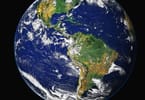If you’re a frequent traveler, you’ll be happy to note that there’s a tremendous demand for soft skills developed through traveling. Companies branch out to several cultures and markets, and you may be the person they want for the job. If you’re looking for a job tailor-fit for you and want to stand out, you can check the tips below on how you can emphasize your adventures on your resume.
How to Make Your Travels Contribute to Your Resume
If you’re leaving the country for a year of adventure, you can ensure that your experiences add a positive addition to your resume. Check the tips below:
● Make Your Trip Meaningful
If you’re temporarily moving out of your comfort zone. You should learn some skills you can use to stand out when you apply for jobs when you return.
● Set Goals When You Travel
If you’re setting out for an adventure, ensure you accomplish a goal or two suitable to your field. For example, you can further your photography skills, create a social media following, volunteer for a nonprofit, or build a small brand.
● Create Relevant Experiences to Your Industry
If you’re taking a year on leave, you should learn a new skill, find freelance or temporary job, signup for a course, or any relevant experience that you can use to explain to your potential employer why you left.
Top Tips on How You Can Include Your Travels to Your Resume

1. Travel Must Be Pertinent to the Job
For you to highlight your travel experiences, your skills and experiences must relate to the position you prefer. Check the job criteria, and list the skills matching your experiences in living in other countries. For example, is the employer considering a candidate with cross-cultural understanding, negotiation, or communication skills? Are they searching for someone who’s self-sufficient and possesses independent decision-making?
Your resume must have a professional story. However, if your travels don’t apply to the job description, you may include your adventures as additional information or in the hobbies section. However, professional resume writers remind you to be cautious about turning your experiences into fluff. Instead, learn to pick the travels that develop skills required for the job.
2. Share Your Travel Accomplishments
You may talk about what you accomplished from your travel experiences. For example, you volunteered for an organization or learned language proficiency while vacationing in another country. Draft them so that you can exhibit independence to your potential employer.
3. Categorize Your Travels
If you travel for leisure, you can’t put your adventures as work experience. However, you may still include them in your resume but in another section.
4. Don’t Overshare or Elaborate on Your Travels.
Remember not to overshare your adventure because your resume should be concise. Therefore, the cv writing service uk suggests that you only have to include skills or experiences relevant to the job.
5. Check Job Requirements
If the job description includes extended or occasional travel, you should consist of your travels. Moreover, you may have them if they’re helpful in your explanation about the long career gap in your resume. On the other hand, you shouldn’t include your foreign adventures if you can’t highlight the skills your potential employer desires in a candidate.
6. Share Your Travel Experiences in Your Cover Letter
If your travels aren’t suitable in your resume, you may mention them in your cover letter. You can include perspectives or skills you learned from your journeys.
7. Highlight Hard and Soft Skills Learned While Traveling
Hard skills are skills you learned, like a new language. On the other hand, soft skills are social skills such as leadership, communication, or motivational skills. They are essential but aren’t quantifiable.
You may have opted to travel right after graduation; therefore, you may have developed more soft skills. Consequently, you may feature self-growth in your resume, ensuring that you share experiences showing actions, circumstances, and outcomes. Most employers prefer to look into soft skills and experiences so that you can highlight them.
Final Thoughts
If you prefer to apply for a job and want to include your travels in your resume, you should use your wise judgment. However, the mentioned tips should help you how you can share your adventures without oversharing. In addition, the job description should tell you if you can list your trips in your application.
WHAT TO TAKE AWAY FROM THIS ARTICLE:
- If you're taking a year on leave, you should learn a new skill, find freelance or temporary job, signup for a course, or any relevant experience that you can use to explain to your potential employer why you left.
- If you're looking for a job tailor-fit for you and want to stand out, you can check the tips below on how you can emphasize your adventures on your resume.
- If you prefer to apply for a job and want to include your travels in your resume, you should use your wise judgment.






















